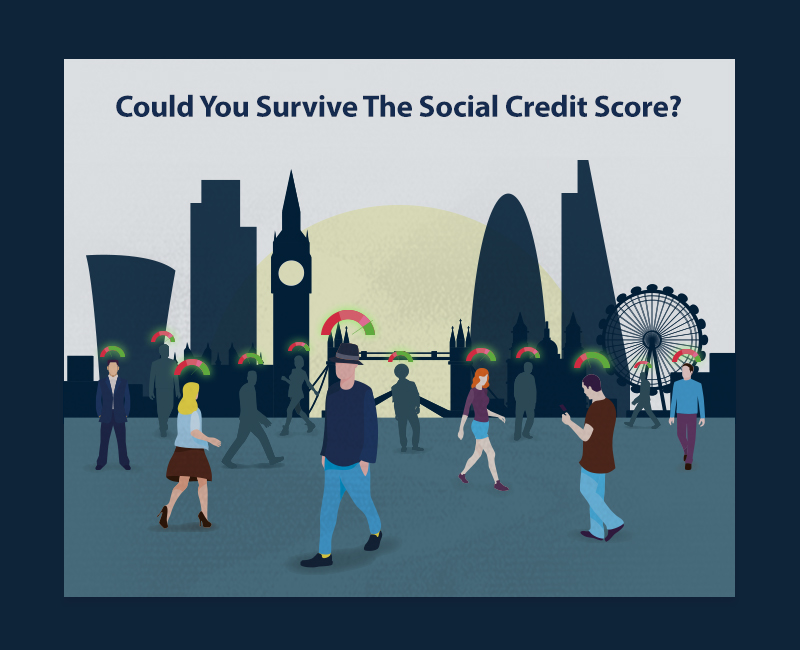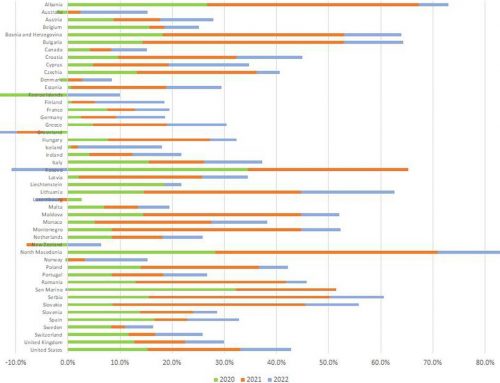“Social Credit”! Ein neuer Kreditkarte? Gratis Facebook & Soziale Platforms nutzen? Ein Geschenk? Oder doch wieder mal Kontrolle?
Jeden Tag sehe ich neue Artikel über “Social Credit”. Gestern habe ich mich mal etwas tiefer informiert. China ist seit längere Zeit dabei, es auf multiple Ebenen zu testen und viele Menschen dort finden es gut, praktisch und etwas Positives für ihre Zukunft. Anderen finden das nicht, weil sie nicht mehr fliegen können, kein Ticket mehr für den Schnellzug kaufen oder ins Ausland gehen dürfen, oder andere Beschränkungen aufgelegt bekamen.
Diese Testperiode läuft weit führend im Westen Chinas, wo es anscheinend viele “Camps” gibt. Seit einigen Wochen werden sie in der Wandel auch Konzentration-, Arbeit- oder Umschulung-Camps genannt werden. China hat überall Kamera´s installiert und kontrolliert Gesicht, dein soziales Verhalten, wo und was du einkäufst, welche Freunde du hast, welche soziale Kontakte du pflegst, welche Websites du besuchst, wo du esst und was du esst und vieles mehr.
Bist du ein gutes “Mädchen oder Bub” bekommst du hohe soziale Kreditpunkte und dadurch ziemlich viel Freiheit um zu tun was du willst und ein zu kaufen was du möchtest. Aber oje, du besuchst die falsche Websites, folgst die falsche Leute in Twitter oder so, schreibst Aufrechtes in deiner Facebook-Seite……. dann werden Soziale Punkte abgezogen. Dann werden deine Flügel gekürzt und kann es im schlimmsten Fall “Erziehung-Camp im Westen” bedeuten.
Could you survive the social credit score??
Artikel in ABC Finance Limited / Engeland
Ganzer Artikel inklusiv Links lesen unter Link: https://abcfinance.co.uk/blog/surviving-the-social-credit-score/
We’re all familiar with ‘credit scores’, where financial institutions track how responsible you are with your hard-earned money to assign you a value determining the loans and cards you are eligible to apply for.
However, a new scoring system being trialled in China (set to become standard practice by 2020) and currently under consideration in Europe is far less discussed despite the fact it may eventually become an integral part of our day to day lives.
HOW WOULD THE SOCIAL CREDIT SCORE AFFECT ME?
This system monitors a lot more than your financial savviness. It involves governmental and financial institutions ranking your everyday behaviour – both online and via CCTV monitoring – and has been dubbed the ‘social credit score’.
Essentially, everything from the way you spend your money and behave on social media to the people you associate with would affect your score and whether you are rewarded or punished.
To find out how well you would rank under these conditions and whether you would be eligible for rewards or social restrictions, take our Surviving the Social Credit Score quiz.
IS THE UK READY FOR A SOCIAL CREDIT SYSTEM?
We conducted a survey to find out how Brits viewed the idea of social credit scoring. Our results showed that the social credit score is a concerning concept, with 66% of respondents stating that they would change their day to day behaviour (both on and offline).
This even extends to who people associate with, as a staggering 75% said they would cease contact, or at least think about doing so, with someone that would negatively affect their social score.

REWARDS AND PUNISHMENTS: CONCERNS OVER SOCIAL CREDIT
Over 1/3 of people surveyed believed that their social credit score would either be average or bad – meaning that they would likely face negative consequences. So, it’s no surprise that 78% viewed the idea of being scored on their value as a good citizen with strong negative emotions.
To gain more understanding of what would sway people either way, we asked which existing rewards and punishments from the Chinese system would have the biggest effect on their opinion of social scoring.

Interestingly, the incentives most likely to make Brits welcome the social credit score were priority healthcare, discounts on energy bills and better interest rates on loans. This tells us that financial rewards and access to premium medical care are more likely to change people’s opinions than the quality of their children’s education.
But what would make us push back? According to our survey, the potential punishments that would have people resist this system are: being publicly named & shamed (how very British!), being prevented from applying for credit cards and a restriction on the type of jobs people could apply for.
Ein interessantes Video Chinas Digital Dystopian Dictatership
http://indigochild.net/chinas-digital-dystopian-dictatership-do-we-want-to-follow






